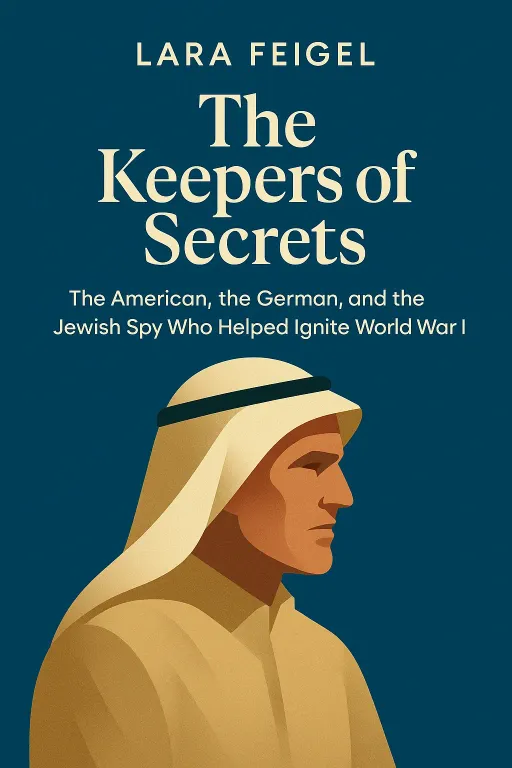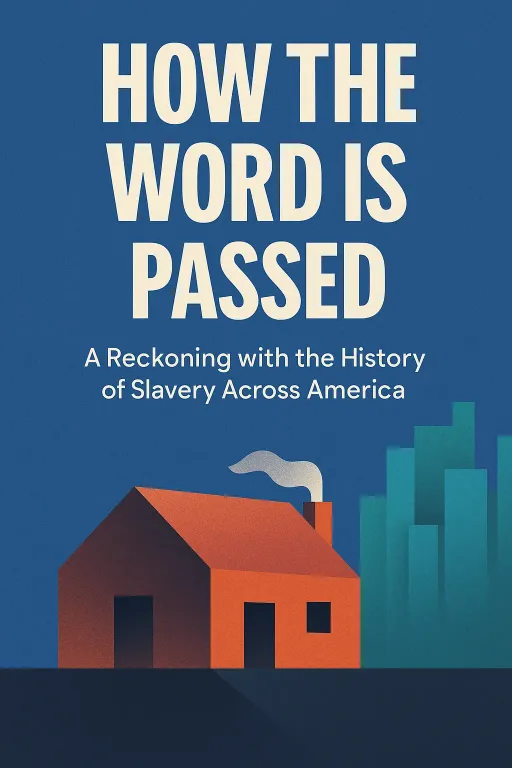
The Keepers of Secrets
11 minThe American, the German, and the Jewish Spy Who Helped Ignite World War I
Introduction
Narrator: On October 30, 1918, with the end of the Great War in sight, Colonel Thomas Edward Lawrence was summoned to Buckingham Palace. In a grand ballroom, King George V stood ready to bestow upon him a knighthood, a prestigious honor for his legendary service in the deserts of Arabia. But as the King prepared to perform the ceremony, Lawrence, in a quiet but firm voice, refused. He would not kneel. He would not accept the medal. A stunned silence fell over the court as Lawrence turned and walked away, leaving the King holding the velvet cushion and the Queen staring in disapproval. This single act of defiance cemented the enigma of "Lawrence of Arabia," a man who seemed to reject the very empire he had so brilliantly served. Why would a hero refuse his reward?
The answer lies within a far more complex story than the popular myth suggests, a story of espionage, betrayal, and the clandestine birth of the modern Middle East. In the book The Keepers of Secrets, author Lara Feigel reveals that Lawrence was not a lone actor but one of several young, ambitious, and largely unsupervised agents—an American, a German, and a Jewish scientist—whose secret missions during World War I would forever alter the course of history. Their intertwined stories explain not only Lawrence’s disillusionment but also how a region dismissed by world leaders as a "sideshow" became the epicenter of conflicts that endure to this day.
The Great Game in the Desert
Key Insight 1
Narrator: Long before the first shots of World War I were fired, the Holy Land was already a theater of covert operations. In early 1914, the desolate landscape of southern Palestine became the backdrop for a quiet collision of imperial and corporate ambitions. A young British archaeologist named T.E. Lawrence and his colleagues were in the desert, ostensibly on a scholarly expedition. In reality, they were conducting a secret military survey for the British government, mapping the strategic terrain on the border of Ottoman-controlled territory.
Their work was interrupted by the arrival of two wealthy American "playboys," William Yale and Rudolf McGovern, who claimed to be on a grand tour. But their lavish caravan and unusual route raised suspicions. Lawrence, alerted by the British consulate, intercepted the Americans. Feigning casual interest, he engaged them in conversation. As William Yale later recalled, Lawrence’s innocent-seeming chatter was a stream of questions that "most successfully pumped us dry." The Americans were, in fact, secret agents for the Standard Oil Company of New York, searching for petroleum deposits. This encounter in the desert was a microcosm of the era: a landscape teeming with spies operating under false pretenses, each representing powerful interests—British, American, German, and Zionist—all vying for influence and resources in the crumbling Ottoman Empire, a region the Allied leaders would soon nickname "the Great Loot."
The Making of an Unconventional Agent
Key Insight 2
Narrator: T.E. Lawrence’s ability to navigate this world of deceit was forged by a highly unusual upbringing. He was the illegitimate son of an Anglo-Irish aristocrat who had abandoned his wife and inheritance to live with his daughters' governess. The family lived under the assumed name "Lawrence," their lives shrouded in a secret that created an emotionally austere and intensely private household. This environment shaped a young man who was emotionally constricted but possessed an iron will and a relentless drive to test his physical and mental limits.
His passion was for history, particularly the Crusades. In the summer of 1909, against the advice of his mentors, he embarked on a grueling, thousand-mile solo walking tour of Syria to survey Crusader castles for his Oxford thesis. He traveled with little money, endured blistering heat, dysentery, and attacks by bandits, yet he completed his mission. When his mentor expressed concern about the dangerous plan, Lawrence’s simple, unshakeable reply was, "I’m going." This journey was not just academic; it was transformative. It instilled in him a deep understanding of the land and its people and proved his extraordinary capacity for endurance and self-reliance. It was this "very unusual type," as one of his professors described him, indifferent to comfort and driven by an inner fire, who was perfectly suited for the ambiguous and perilous role he would soon play in the Arab Revolt.
The Sideshow That Became the Main Event
Key Insight 3
Narrator: When war finally erupted in August 1914, Europe was gripped by a euphoric madness. Crowds cheered in the streets of London, Paris, and Berlin, convinced the conflict would be a short, glorious affair, over by Christmas. Amidst this delusion, one man saw the horrific truth. Lord Kitchener, Britain's newly appointed Secretary of State for War, had witnessed the devastating power of modern machine guns firsthand in colonial conflicts like the Battle of Omdurman. At his first cabinet meeting, he stunned his colleagues by predicting a long, catastrophic war that would not end until Britain had "plumbed our manpower to the last million."
His warning was ignored. The war became a meat grinder, with generals like Douglas Haig dismissing the loss of 58,000 men in a single day as casualties that "cannot be considered severe." In this context, the Middle Eastern theater was viewed as a strategic backwater, what Lawrence himself would later call "a sideshow of a sideshow." This official neglect, however, had a profound and unintended consequence. It created a power vacuum on the ground, granting immense freedom and influence to the low-level agents operating there. While his brothers enlisted, a frustrated Lawrence was initially stuck in London, tasked with turning his archaeological survey into military maps. He feared the war would pass him by, unaware that his destiny lay not in the trenches of France, but in the very "sideshow" everyone else was ignoring.
A Web of Competing Agendas
Key Insight 4
Narrator: Lawrence was far from the only keeper of secrets in the desert. The future of the Middle East was being contested by a diverse cast of characters, each with a hidden agenda. One was Curt Prüfer, a German scholar and diplomat. Forced to resign from his post in Cairo after the British exposed his espionage activities, Prüfer burned with a desire for revenge. Posing as a travel writer, he worked to foment an Islamic jihad against the British and their allies. He cultivated relationships with Egyptian dissidents and even began an affair with Minna Weizmann, a young Jewish doctor, whom he would later recruit as a spy for Germany, unaware that her brother, Chaim Weizmann, was a leading figure in the Zionist movement.
Another key player was Aaron Aaronsohn, a brilliant Jewish agronomist and ardent Zionist. A Romanian émigré to Palestine, Aaronsohn was a world-renowned scientist who had discovered wild-growing wheat, a discovery that could revolutionize agriculture. But his true passion was the creation of a Jewish homeland. He believed his scientific knowledge could make the desert bloom and support a new nation. As the war began, he saw an opportunity. Believing the Allies would win, he established a sophisticated anti-Ottoman spy ring, known as Nili, to provide crucial intelligence to the British, hoping to earn a seat at the postwar negotiating table. These men—the British archaeologist, the German spy, the American oilman, and the Zionist scientist—were all pulling at the threads of a dying empire, their competing ambitions weaving a complex web of intrigue and betrayal that would ultimately shape the modern Middle East.
Conclusion
Narrator: The central, powerful takeaway from The Keepers of Secrets is that the modern Middle East was not designed in the grand halls of power in London and Paris. It was forged in the heat, dust, and chaos of a forgotten war front by a handful of young, determined individuals driven by a volatile mix of idealism, ambition, and revenge. The book dismantles the myth of the lone hero and replaces it with a far more fascinating and troubling reality: a story of multiple, overlapping clandestine operations, where loyalties were fluid and the future was a prize to be won through deception.
The legacy of this period is not one of glorious adventure, but of broken promises and secret deals, like the Sykes-Picot Agreement, which carved up the region to serve imperial interests while betraying the Arab allies who had fought and died for their independence. The political fault lines drawn by these keepers of secrets a century ago have hardened into the seemingly intractable conflicts that define the Middle East today. The book leaves us with a challenging thought: how much of our world is shaped not by the histories we are taught, but by the secrets that were kept?









